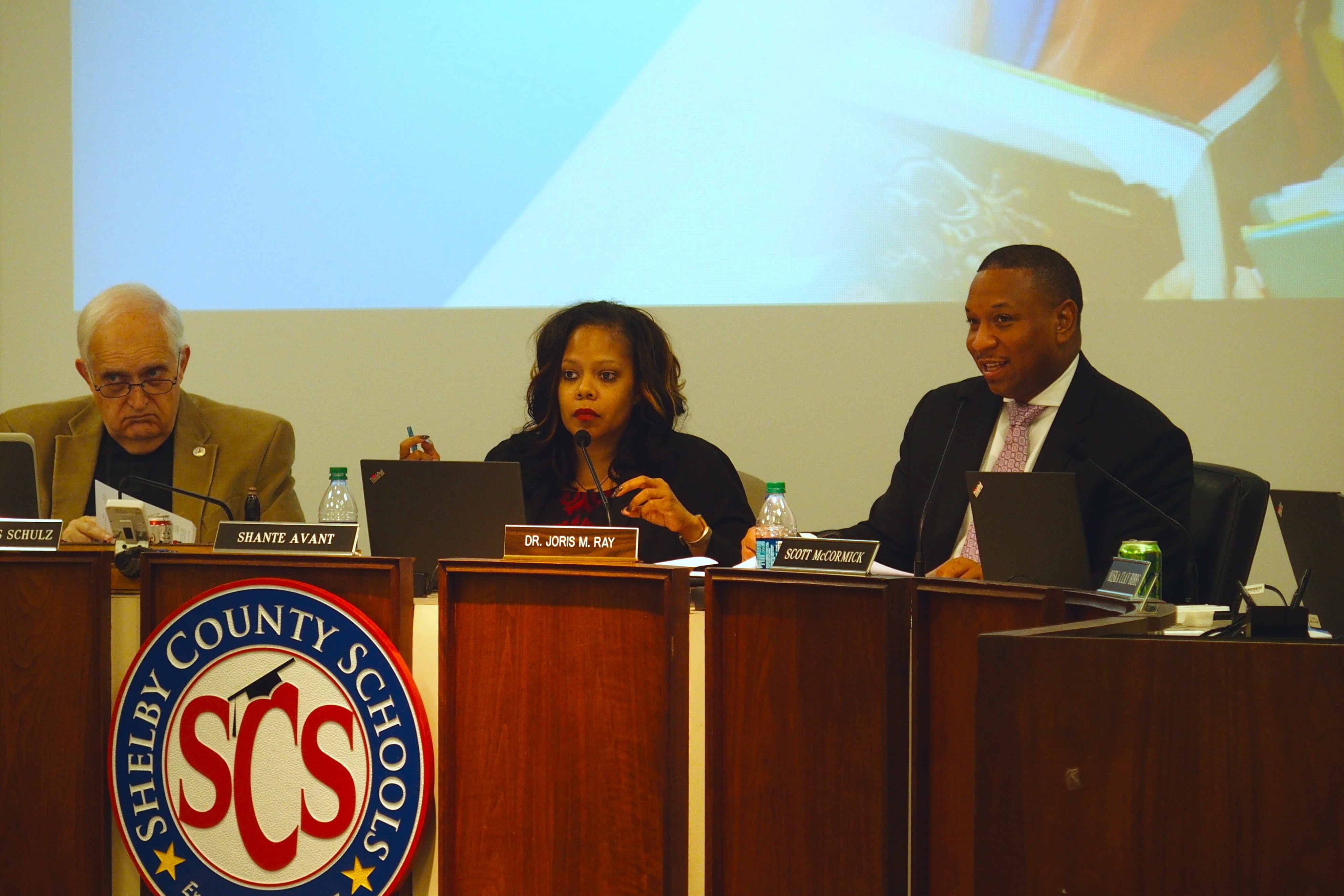All seven candidates competing to represent District 6 on the Memphis-Shelby County school board agreed that Tennessee’s largest school system needs to improve student achievement. But during interviews with the County Commission on Wednesday, they offered different ideas on how the district should tackle the issue.
The school board vacancy stems from Shante Avant’s resignation last month. Avant, who had represented neighborhoods spanning South Memphis, Riverside, Westwood, and Whitehaven on the school board since 2014, moved out of the district and has launched a campaign to represent Cordova on the County Commission.
The County Commission’s three-hour interview with the school board hopefuls also offered a preview of August’s District 6 race.
Although whoever the County Commission appoints is only slated to fill the District 6 seat through Aug. 4, when voters will elect Avant’s permanent successor, five of the seven candidates have also thrown their hat into that race.
In their pitches to the commission, the applicants highlighted their deep-rooted, decades-long connections to District 6, the city, and the school district. They also touted their professional and personal experience inside and outside of education. And the applicants shared their perspectives on Memphis-Shelby County Schools’ greatest challenges — from academic performance and retaining teachers to addressing aging facilities and preventing violence in schools — and offered some solutions.
Drawing on her school social work experience, Juliette Eskridge, a caseworker at G.W. Carver College and Career Academy, said truancy would be her top priority. And as a native Memphian who has lived in District 6 most of her life, Eskridge said she’s seen firsthand the barriers the many students living in poverty face to attend school. She suggested the school board review its attendance policies and transportation.
“Children can’t learn if they are not in school,” Eskridge said.
Charles Everett, a technical principal at FedEx Services, highlighted his involvement with various PTSAs and his decades-long career at FedEx, where he’s noticed that many students are not well-prepared for life beyond high school. While he recognized the pandemic has hampered student learning, Everett said the district needs to turn around student achievement within three years or less, and suggested officials focus on academic innovation.
Timothy Lee Green, Jr., owner of the education consulting firm Greenlit Consulting and co-founder of Memphis Restorative Justice Coalition, touted his commitment to bettering the lives of students, especially those in District 6, where he grew up. Green said the district must boost its support for teachers and students and suggested increasing teacher pay, better addressing student’s social and emotional needs, and partnering with more community organizations.
“As a former teacher, sometimes it was hard going into the classroom some days,” he said. “So if I felt that way, just imagine how our students and families and teachers are feeling now.”
Calling the district’s most recent TCAP scores an embarrassment, Keith Williams also suggested the district focus on retaining teachers to promote stability in schools and academic growth. Williams, executive director of the Memphis-Shelby County Education Association, one of two teachers unions in Memphis, said the district desperately needs new textbooks and should rethink its current curriculum.
“The textbook is what drives the curriculum,” Williams said. “We haven’t bought textbooks in years, and it shows up in the numbers.”
Kenneth Lee, a former deputy court clerk for Juvenile Court and a youth gun violence awareness activist, emphasized his efforts in the community to curb gun violence and said tackling crime in schools and the community would be his top focus. He also would improve transparency and accountability. He said many parents don’t feel heard and have difficulty contacting the school board and district administrators.
Sharon Webb, senior pastor at Life Changing Word Ministry, a former teacher, and former school board member, echoed Lee’s concerns about violence in school, saying it often stems from bullying. She also called for the district to improve early literacy and touted her previous experience as a board member and her efforts to boost literacy when she was a teacher.
Tiffani Perry, chief of staff at Rust College and co-founder of the Whitehaven Empowerment Expo, stressed the importance of pre-kindergarten instruction, saying the district and community should work toward making it accessible to all children and families, rather than those with the highest needs. She also highlighted her experience managing tens of millions of dollars at Rust College and emphasized that she’s the only candidate who is a current parent of a Memphis-Shelby County Schools student.
“As a mother of a brown boy in this district, I have a personal stake in this,” she said.
The County Commission will vote to select the temporary appointee at its March 21 meeting.
Samantha West is a reporter for Chalkbeat Tennessee, where she covers K-12 education in Memphis. Connect with Samantha at swest@chalkbeat.org.






